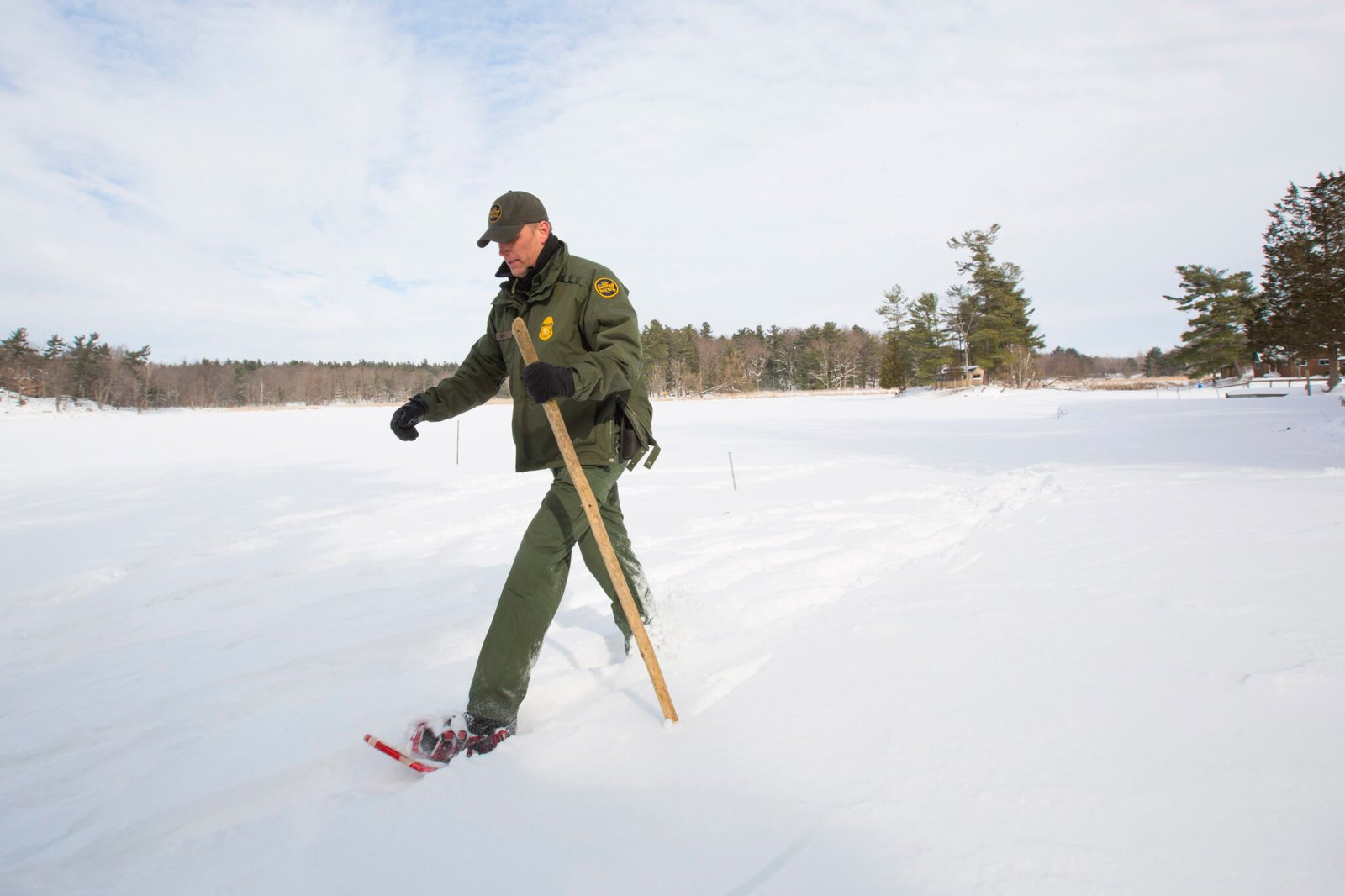Border Patrol
Congress Targets Northern Border with New Enforcement Initiative

WASHINGTON – While discussions on U.S. border security often concentrate on the southwest, the U.S. Senate passed a notable bipartisan bill in June targeting a different frontier: the U.S.-Canada border.
The legislation, named the Northern Border Coordination Act, was co-authored by Sen. Susan Collins (R-Maine) and Sen. Gary Peters (D-Mich.). The bill aims to bolster border security by hiring additional U.S. Border Patrol agents for the understaffed northern regions and establishing the Northern Border Coordination Center at Selfridge Air National Guard Base near Detroit. This center will coordinate border security strategies effectively.
The Senate unanimously supported the legislation, but the House has yet to take action on it.
Spanning over 5,500 miles, the northern border is the longest international boundary globally, divided into eight patrol sectors with 49 official crossing stations.
However, large portions of this border are undefended. Primarily, it is marked by a 6-foot clearing or vista, hundreds of white markers, and natural water boundaries.
In recent years, lawmakers from northern states have voiced concerns over increased illegal crossings, driven by economic and political turmoil in Latin America. In 2023, the CBP encountered nearly 190,000 individuals attempting to cross from Canada into the U.S., a significant rise from the previous years.
The Swanton Sector, covering parts of New York, Vermont, and New Hampshire, witnessed a 550% increase in illegal crossings from Quebec from October 2022 to September 2023.
Encounter statistics from border officials, while informative, are not a direct measure of the number of people entering the U.S., notes Collen Putzel, a policy analyst at the Migration Policy Institute.
Staffing shortages have exacerbated the challenges at the northern border. A 2019 U.S. Government Accountability Office study highlighted these issues, noting that priority was often given to the U.S.-Mexico border.
A CBP spokesperson emphasized the need for congressional support to ensure adequate resources and personnel for all borders.
Sen. Peters believes the Northern Border Coordination Act will address these staffing shortfalls, enhancing both coordination and border security technology.
Mainly, individuals crossing the northern border are not originally from Canada. Roughly 50% come from countries like Mexico, India, Bangladesh, and Haiti. Many are suspected of being guided by smuggling networks.
Canada’s alteration in visa requirements for Mexican nationals in February has contributed to rising asylum claims. Nearly 24,000 Mexicans applied for asylum in Canada by the end of 2023, a stark increase from previous years.
With the uptick in crossings from Canada, national security concerns along the northern border have escalated. In 2023, the CBP encountered 484 individuals on the terrorist watchlist attempting to cross from Canada, a substantial rise compared to previous statistics.
Drug seizures have also increased by 29% since 2021, with marijuana being the primary substance. However, seizures of weapons and ammunition have decreased significantly.
Democratic Rep. Shri Thanedar, representing Detroit’s northern border region, stressed the necessity of the Collins-Peters proposal to mitigate rising security threats.
Economic factors also drive the surge in migrations, posits Silvia Pedraza, a sociology professor at the University of Michigan. The U.S. labor market is more attractive to immigrants than Canada’s, despite the U.S.’s reluctance to grant legal status.
Pedraza highlighted that immigrants significantly contribute to sectors like agriculture, construction, and services, which U.S. citizens increasingly avoid due to rising educational attainment.
She underscored the need for recognizing the vital economic role immigrants play and called for a nuanced view of immigration beyond the intense focus on the southern border.
“Such negative portrayal overlooks the immense value immigrants bring to our country,” Pedraza concluded.


















